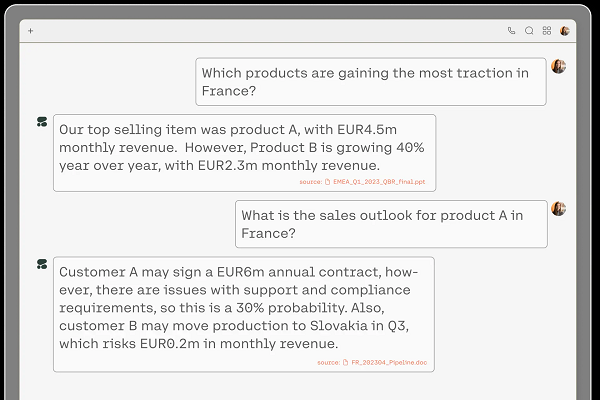FTC's Appeal Against Microsoft-Activision Merger Green Light

Table of Contents
The FTC's Core Arguments Against the Merger
The Federal Trade Commission (FTC) believes the Microsoft-Activision merger poses a significant threat to fair competition within the gaming market. Their primary concerns revolve around the potential for anti-competitive behavior by Microsoft, leveraging its newfound power to stifle innovation and harm consumers.
-
Reduced competition in the console gaming market: The FTC argues that the merger would give Microsoft an unfair advantage over its main competitor, Sony PlayStation, especially concerning exclusive content. This dominance could lead to reduced choice and higher prices for gamers.
-
Potential for Microsoft to leverage Activision's popular franchises: Activision Blizzard owns incredibly popular franchises like Call of Duty, Candy Crush, and World of Warcraft. The FTC fears Microsoft might make these titles exclusive to Xbox, or significantly limit their availability on other platforms, disadvantaging PlayStation and other competitors. This could effectively lock consumers into the Xbox ecosystem.
-
Concerns about future game pricing and availability on competing platforms: The FTC worries that the merger could lead to increased prices for Activision Blizzard games, reduced availability on competing platforms, and a decrease in the quality of games offered on those platforms.
-
Impact on subscription services and cloud gaming: Microsoft's Game Pass subscription service could become even more dominant, potentially squeezing out competitors and limiting consumer choice in subscription-based gaming services. Similarly, concerns exist about Microsoft’s ability to leverage Activision's titles to dominate the burgeoning cloud gaming market.
The FTC's arguments are supported by extensive evidence and detailed economic modelling suggesting a significant reduction in competition post-merger. Their official statements emphasize the need to protect consumer choice and prevent the creation of a gaming monopoly.
The Judge's Initial Ruling and its Rationale
Despite the FTC's initial lawsuit, a judge ultimately ruled in favor of allowing the Microsoft-Activision merger to proceed. The judge's reasoning centered on several key points:
-
Insufficient evidence of anti-competitive behavior: The judge found that the FTC had not presented enough compelling evidence to demonstrate that the merger would definitively lead to anti-competitive practices that would harm consumers.
-
Microsoft's commitments to maintain Call of Duty's availability: Microsoft committed to keeping Call of Duty available on PlayStation for at least ten years, a factor the judge considered significant in mitigating the FTC's concerns.
-
Competitive dynamics in the gaming market: The judge argued that the gaming market is dynamic and competitive, with multiple players and a variety of platforms, thereby lessening the potential for Microsoft to establish a monopoly.
Microsoft, in its defense, presented evidence highlighting the benefits of the merger, including increased innovation and investment in game development. While the judge's ruling acknowledged some potential risks, it ultimately concluded that the benefits outweighed the potential harms. The decision, however, was not unanimous, with some dissenting opinions expressing reservations about the potential long-term effects of the merger.
Potential Implications of the FTC's Appeal
The FTC's appeal introduces significant uncertainty. Several potential outcomes exist:
-
Complete blockage of the merger: The appeal could result in a complete reversal of the initial ruling, effectively blocking the Microsoft-Activision merger entirely.
-
Modification of the merger with stipulations: The court may impose conditions on the merger, such as forcing Microsoft to divest certain assets or make further commitments to ensure fair competition.
-
Impact on Microsoft's stock price and business strategy: A successful appeal would significantly impact Microsoft's stock price and force a reassessment of its business strategy.
-
Effects on the gaming industry as a whole: The outcome will set a significant precedent for future mergers and acquisitions in the tech industry, influencing how such deals are reviewed and regulated.
The appeal process is expected to be lengthy and complex, with potentially protracted legal battles ahead. The timeline for a final decision remains uncertain, but the implications are far-reaching.
Impact on Gamers and Consumers
The ultimate outcome of the FTC's appeal will directly impact gamers and consumers:
-
Game availability and pricing: The availability and pricing of Activision Blizzard games, particularly titles like Call of Duty, could be significantly affected, depending on the final ruling.
-
Cross-platform gaming and subscription services: The future of cross-platform gaming and the competitive landscape of subscription services like Game Pass will be shaped by the decision.
-
Innovation within the gaming industry: The appeal's outcome will potentially influence the level of innovation and competition within the gaming industry, impacting the type and quality of games released in the coming years.
Conclusion
The FTC's appeal against the Microsoft-Activision merger represents a critical juncture for the gaming industry. The FTC's core arguments focus on preserving competition and protecting consumers from potential anti-competitive practices. While the initial ruling allowed the merger, the appeal introduces significant uncertainty and potential consequences. The outcome will not only impact Microsoft and Activision Blizzard but will also shape the future of the gaming landscape and set a precedent for future mergers in the tech sector. Understanding the FTC's Appeal Against Microsoft-Activision Merger is crucial to understanding the future of gaming. Stay informed about the ongoing legal battle surrounding this crucial development – follow this space for updates and analysis.

Featured Posts
-
 Liverpool Fc News Frimpong Transfer Update Agreement But No Contact
May 22, 2025
Liverpool Fc News Frimpong Transfer Update Agreement But No Contact
May 22, 2025 -
 Navigating The Chinese Market The Bmw And Porsche Case Study And Lessons Learned
May 22, 2025
Navigating The Chinese Market The Bmw And Porsche Case Study And Lessons Learned
May 22, 2025 -
 Toxic Chemicals From Ohio Train Derailment Building Contamination And Long Term Effects
May 22, 2025
Toxic Chemicals From Ohio Train Derailment Building Contamination And Long Term Effects
May 22, 2025 -
 Ai Startup Coheres Sales Surge Ceo Announces Doubling Of Revenue
May 22, 2025
Ai Startup Coheres Sales Surge Ceo Announces Doubling Of Revenue
May 22, 2025 -
 Nantes Le Boom De La Construction Et La Demande En Cordistes
May 22, 2025
Nantes Le Boom De La Construction Et La Demande En Cordistes
May 22, 2025
Latest Posts
-
 Is Blake Lively Involved In This Alleged Incident A Deep Dive
May 22, 2025
Is Blake Lively Involved In This Alleged Incident A Deep Dive
May 22, 2025 -
 Blake Lively Alleged Controversies And Recent News
May 22, 2025
Blake Lively Alleged Controversies And Recent News
May 22, 2025 -
 Blake Lively And The Allegations A Timeline Of Events
May 22, 2025
Blake Lively And The Allegations A Timeline Of Events
May 22, 2025 -
 Recent News On Blake Lively Addressing The Allegations
May 22, 2025
Recent News On Blake Lively Addressing The Allegations
May 22, 2025 -
 Dissecting The Allegations A Deep Dive Into The Blake Lively Controversy
May 22, 2025
Dissecting The Allegations A Deep Dive Into The Blake Lively Controversy
May 22, 2025
